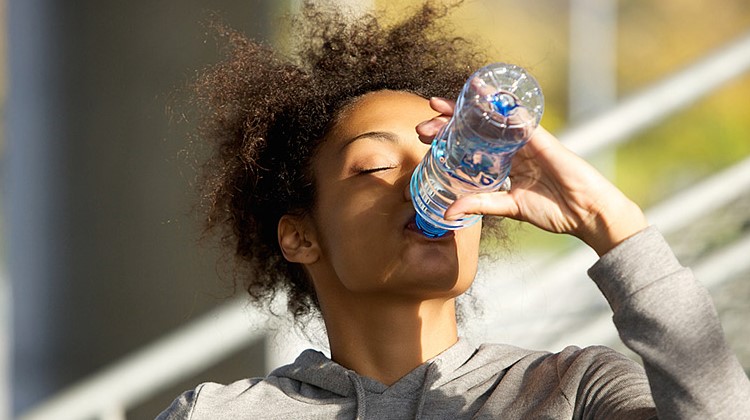Diabetics often fail to see the positive effects that a bodybuilding lifestyle can have on their condition. In this piece, I’ll discuss the main reasons why people with diabetes should adopt a bodybuilding lifestyle.
But first, it is important to answer the first question in the mind of many readers.
The First Question: What Is Diabetes?
The term “diabetes” can refer to either of these two conditions:
Diabetes type 1 is often known as “insulin dependent diabetes” because persons with this form of the disease require regular insulin injections to maintain normal blood sugar levels. Insulin is a hormone that is critical for energy synthesis from glucose (carbs) in the blood. Insulin is also crucial for transporting nutrients (fats, carbs, and proteins) into muscle cells. This hormone is produced in the body by the pancreas. Because it is an autoimmune response that leads to the pancreas’ cells malfunctioning, Type 1 diabetes cannot be avoided. This typically occurs between the ages of 8 and 12 (though cases have been reported where it happens much later).
Type 2 diabetes, on the other hand, can be managed without insulin injections since it results from a failure of cells to properly respond to insulin. Insulin insensitivity, often known as low insulin sensitivity, is the medical term for this issue. When cells refuse to respond to the hormone insulin, not only does the individual experience poor energy generation, but they also begin to gain weight because nutrients are not being supplied to the correct regions. When the body detects that cells are not taking in enough insulin, it responds by producing more insulin. As a result, the person’s cells become more resistant to the effects of food, and their body fat continues to increase regardless of what they eat.

How to Combat Diabetes with Bodybuilding Training
In the battle against diabetes, a bodybuilder’s dedication to a healthy lifestyle can prove invaluable. Next, I’ll talk about how adopting a bodybuilding lifestyle can improve your insulin sensitivity and how your body uses glucose (carbohydrates).
Bodybuilding Benefits for people with Diabetes
Type 2 diabetics can reap several rewards by adopting a bodybuilding lifestyle.
#1. Insulin sensitivity and glucose tolerance are enhanced by bodybuilding exercise:
Bodybuilding appears to be particularly helpful for those with type 2 diabetes (which accounts for around 90% of all occurrences of diabetes) by increasing insulin sensitivity and so attacking the problem that causes it. However, type 1 diabetics also gain, as they often require less insulin to maintain normal blood sugar levels.
#2. The need to rely on glucose as an energy source rises during bodybuilding training:
Muscle mass can be increased with even minimal bodybuilding training (for example, 30–40 minutes three times per week). Having more muscle requires more glucose to fuel daily activities and physical exertion. As a result, the type 1 diabetic may be able to cut their insulin dose (lower glucose levels allow for a smaller insulin dose to manage the remainder). Muscle building workouts not only improve insulin sensitivity, but the aerobic exercise component also aids in the disposal of glucose.
#3. Bodybuilding diets will help you maintain healthy blood sugar levels:
Regular monitoring of blood sugar levels is essential for success in bodybuilding, and this can be achieved through careful dietary planning. The majority of your carbohydrate intake should come from slow-release/high-fiber sources like sweet potatoes, oatmeal, veggies like broccoli and green beans, and brown rice. Excellent protein sources include eggs, fish like Atlantic Salmon and tuna, lean meats like turkey and chicken as well as lean cuts of beef and egg whites.
To boost insulin sensitivity and maintain stable blood sugar levels, consume a diet with a moderate amount of healthy fats, such as those found in extra virgin olive oil, flaxseed oil, and salmon (fish oils). I find that eating smaller, more frequent meals with a macronutrient breakdown of 20% good fats, 40% protein, and 40% carbohydrates are the most effective.

#4. You can improve your body’s ability to use insulin and dispose of glucose by using certain bodybuilding supplements:
Building muscle effectively calls for a high level of insulin sensitivity and nutrition utilization. This is why enhancing insulin metabolism through supplementation is so important for bodybuilders. Here is a list of effective supplements:
- Alpha lipoic acid: Alpha lipoic acid is excellent at boosting insulin sensitivity. Along with a post-workout protein/carbohydrate drink, you can also take about 400 mg of alpha lipoic acid.
- Chromium picolinate: This is excellent in enhancing insulin sensitivity, maintaining steady blood sugar levels, and facilitating the pancreas’ function. On rest days, you can take about 200 mg with your breakfast, and after a workout, you can consume a protein/ carbohydrate smoothie.
- Gymnema sylvestre leaf extract: This is useful for maintaining a healthy blood sugar level. 400 milligrams (mg) three times daily is ideal.
- Vanadyl sulfate: Back in the early ’90s, this supplement was in high demand because of its effectiveness as an insulin mimicker and its capacity to enhance glucose utilization. While the mid-1990s marked its decline, however, this supplement’s effectiveness has been repeatedly demonstrated. You can take about 7.5mg of vanadyl sulfate with every carb-rich meal.
- Vitamin C: Ironically, vitamin C and vitamin E work together to reduce blood sugar levels. Vitamin C’s protective effects extend to the kidneys as well as lowering your cortisol levels. You can take three doses of 1,000 milligrams of Vitamin C daily.
#5. Rest is very important:
When people don’t get enough shut-eye, their brains become overly busy, which prevents the pancreas from making enough insulin. So try to sleep for at least 8 hours daily.
Diabetes and Bodybuilding Training Precautions
Those with diabetes who engage in bodybuilding should be aware of the need to take the following safety measures:
#1. Inquire about your sugar levels both before and after exercise. If your blood sugar is too high or too low before you exercise, you may want to hold off until it stabilizes. Don’t take any action until your blood sugar level is between 100 and 120 mg/dl.
#2. Keep in mind that exercise is most effective when the temperature is between 70- and 75-degrees Fahrenheit, so try to avoid exercising in temps lower or higher than that. Moderate temperatures are ideal for the diabetic bodybuilder because of the function temperature plays in how
the body processes blood sugar.
#3. Keep your blood sugar levels stable by drinking water before, during, and after exercise to keep your body temperature from increasing too much.

#4. Have some snacks on hand: If you begin to feel hypoglycemia, a protein bar and three glucose tablets can be lifesavers (low in blood sugar). Feelings of hunger, trembling, dizziness, confusion, irritability, and sweating are all symptoms of hypoglycemia. Stop exercising and try to regulate your blood sugar by eating three glucose tablets and a protein bar 10 minutes later if this happens to you. After waiting 15 minutes, take another glucose reading. Do not restart exercising if your blood glucose level is below 100 mg/dl.
#5. Eat a protein and complex carbohydrate-rich lunch after your workout: Competent bodybuilders understand the need of refueling after a workout. In order to initiate the recovery, repair, and growth processes immediately following exercise, glycogen stores and amino acid pools must be replenished. The increased uptake of glucose by the muscles shortly after the workout is over as the body scrambles to replenish glycogen is another reason the diabetic bodybuilder should have the post workout meal.
In Conclusion
I’m writing this in the hopes that anyone with diabetes who isn’t already bodybuilding may take the plunge after reading this. If you are already a bodybuilder, you owe it to those who suffer from this dreadful disease to spread the word that bodybuilding may be a potent ally in the fight against it.


